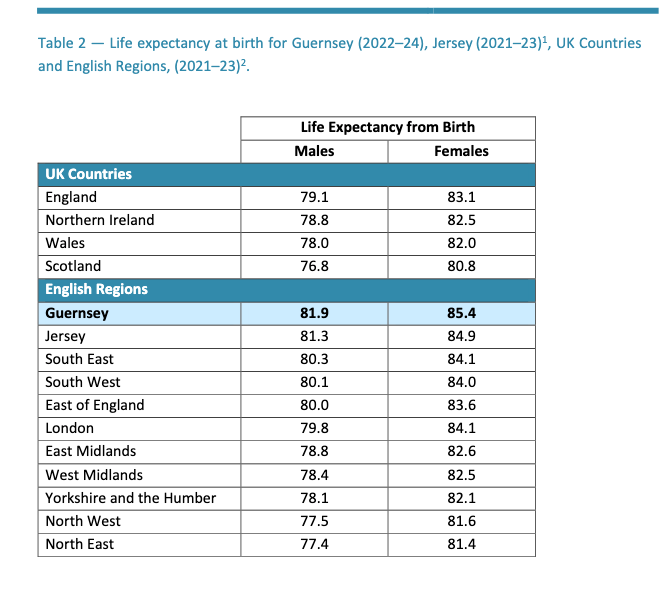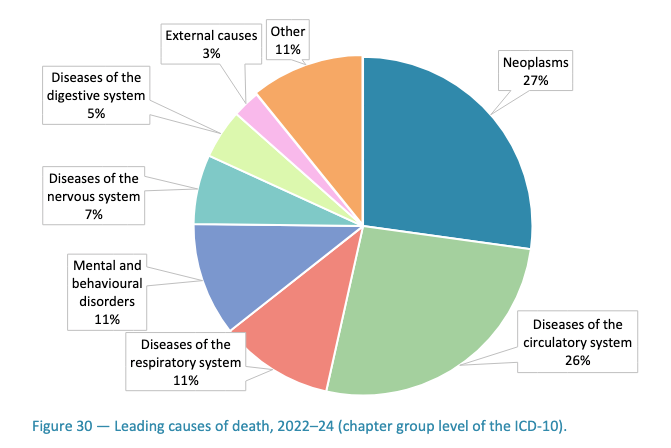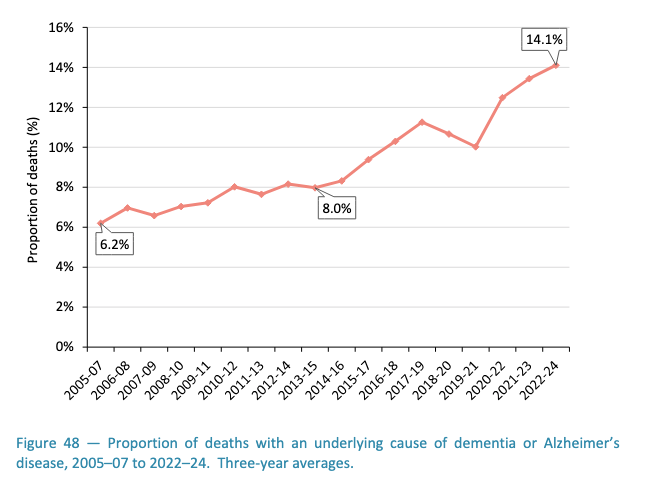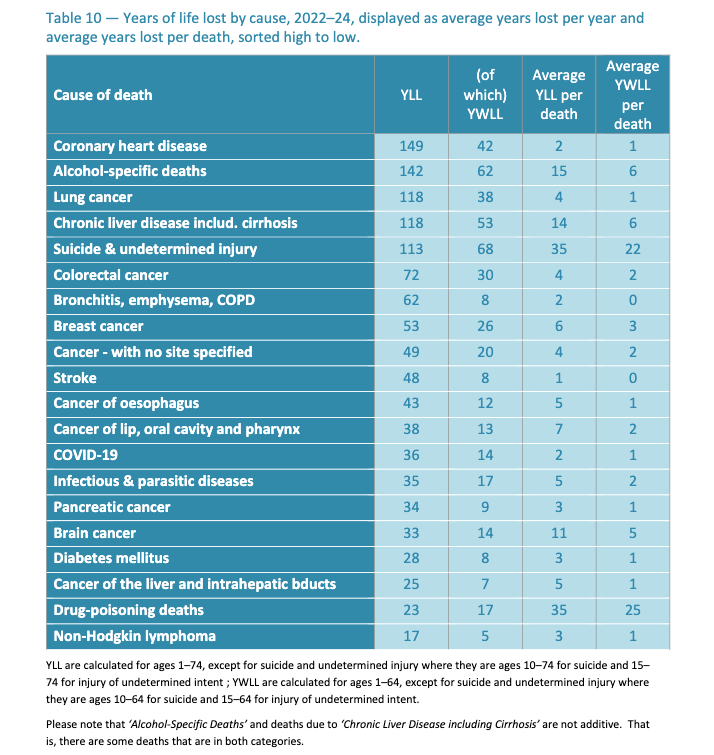One in six deaths in Guernsey could be avoided

- Public Health releases a report on mortality trends for Guernsey and Alderney.
- It covers 2022 to 2024 with historical data included for context.
- Key findings indicate 16% of deaths are deemed 'avoidable,' significantly lower than in England.
- Leading causes of death are cancers, circulatory diseases, and respiratory conditions.
- Director of Public Health calls for increased efforts to reduce alcohol-related deaths.
Public Health Services has published the Guernsey Mortality Trends, 2024 report, detailing mortality statistics for Guernsey and Alderney.
The report analyses mortality rates from 2022 to 2024 while incorporating comparative data from previous years, illustrating underlying trends over time.
The report offers insights into various aspects, including the total number and rates of deaths across all causes, life expectancies, infant and child mortality rates, and the leading causes of death.

It also assesses avoidable and preventable deaths, alongside those linked to smoking, alcohol, suicide, as well as dementia and Alzheimer’s disease.
Key findings from the report revealed that 16% of deaths (309) that occurred in Guernsey between 2022 and 2024, were classified as 'avoidable'.
This figure is significantly lower than that reported in England and similar to Jersey.
Additionally, indicators for infant and child mortality remain low and stable.
A significant proportion, estimated at 10%, of all deaths were attributed to smoking-related causes.
Alcohol-specific mortality remained at a similar level to the previous reporting period (13.1 deaths per 100,000population, previously 13.7). Alcohol-related mortality was similar to, but consistently lower than, the equivalent rate for England (31.8 deaths per 100,000population in Guernsey, 40.7 per 100,000 in England).

Neoplasms (abnormal growth of tissue that may or may not be cancerous), accounted for 27% of total deaths, followed by circulatory diseases at 26%, respiratory diseases at 11%, and mental and behavioural disorders, which also accounted for 11% of deaths predominantly attributed to dementia and Alzheimer’s disease.
The report noted an increase in the proportion of deaths assigned to dementia or Alzheimer’s, which rose to 14.1%, continuing an upward trend observed over the past 20 years, indicating a rise from 6.2% in 2005 to 10.0% in 2019-21.

Dr Nicola Brink, Director of Public Health, said: “Examining causes of death at population level is important because it can reveal factors which are having tangible effects on local people and their families by shortening lives, and many of those are modifiable.”
She stressed that by adopting healthier lifestyles—such as quitting smoking, maintaining healthy weight and physical activity, and responsibly consuming alcohol—the mortality rates could significantly improve.
The report also identified alcohol-related deaths as one of the top contributors to years of life lost, prompting Dr Brink to assert the need for a dedicated effort to tackle this issue, noting, “Reducing this needs to be a serious ambition for our islands going forward, and we are committed to working towards that goal.”

In the period 2022–24, a total of 4,895 years of life were lost in Guernsey prematurely, down from earlier periods.
Coronary heart disease (149 average years lost per year) was the top contributor, followed by alcohol-specific deaths (142) and then lung cancer and chronic liver disease (118).




Comments ()